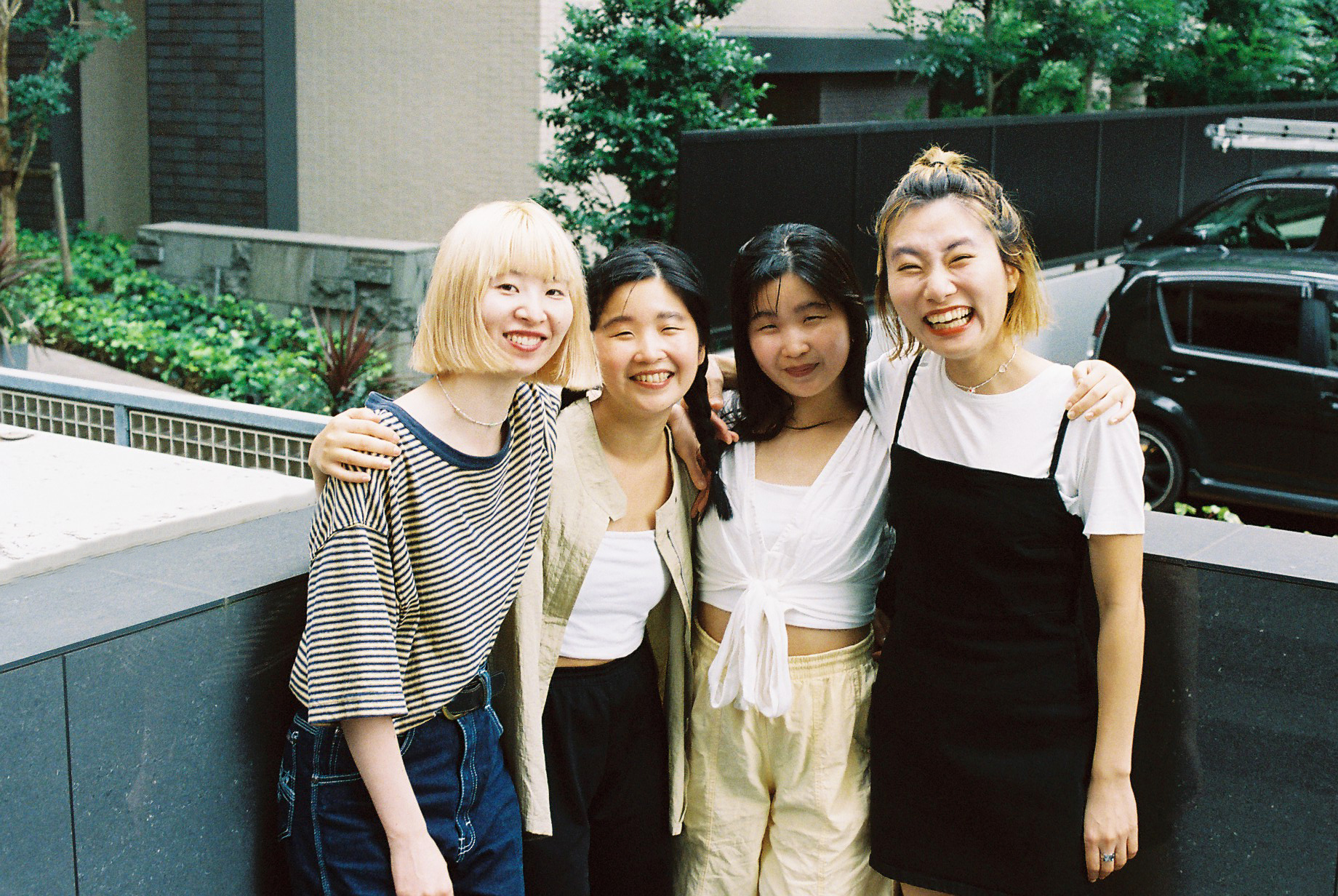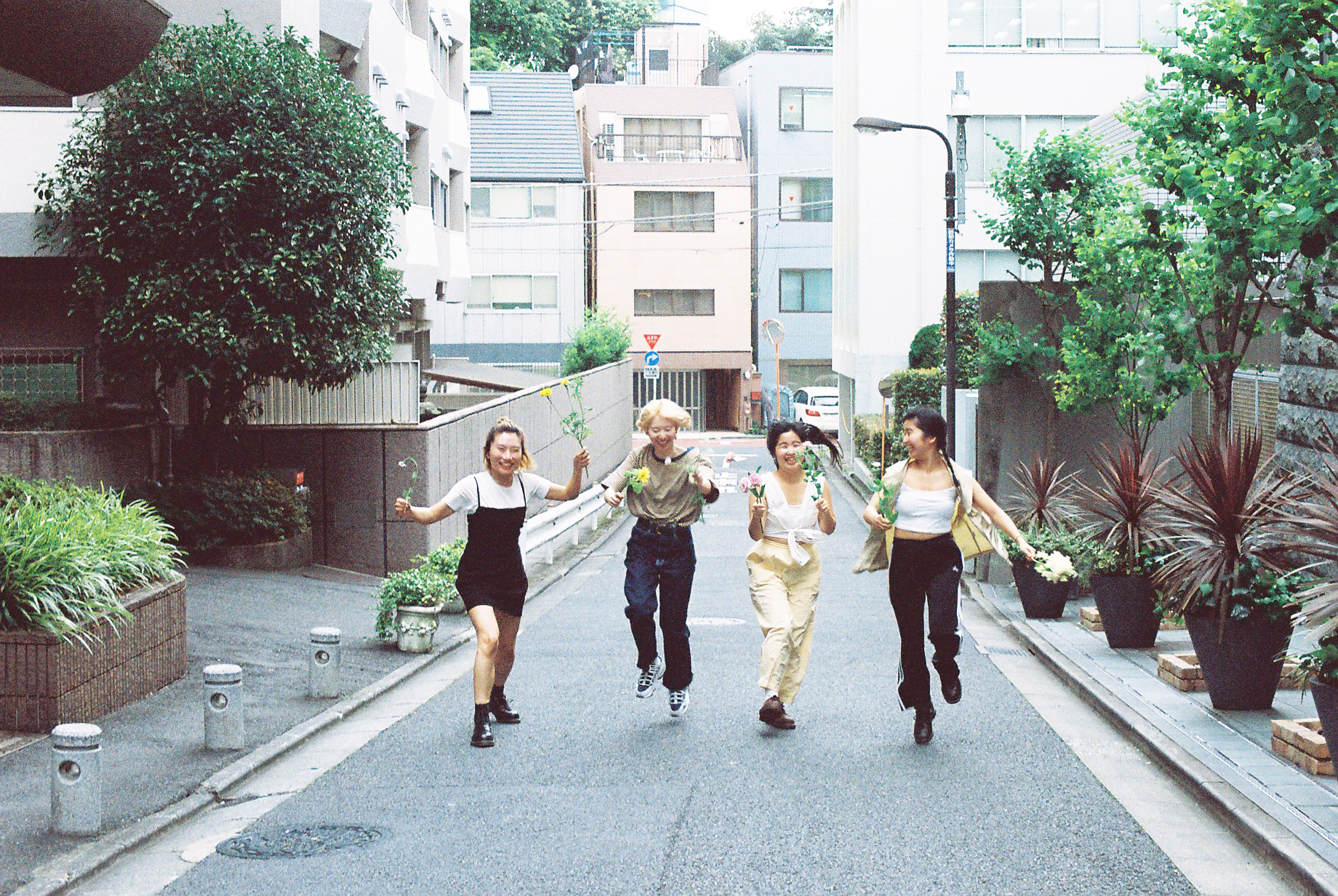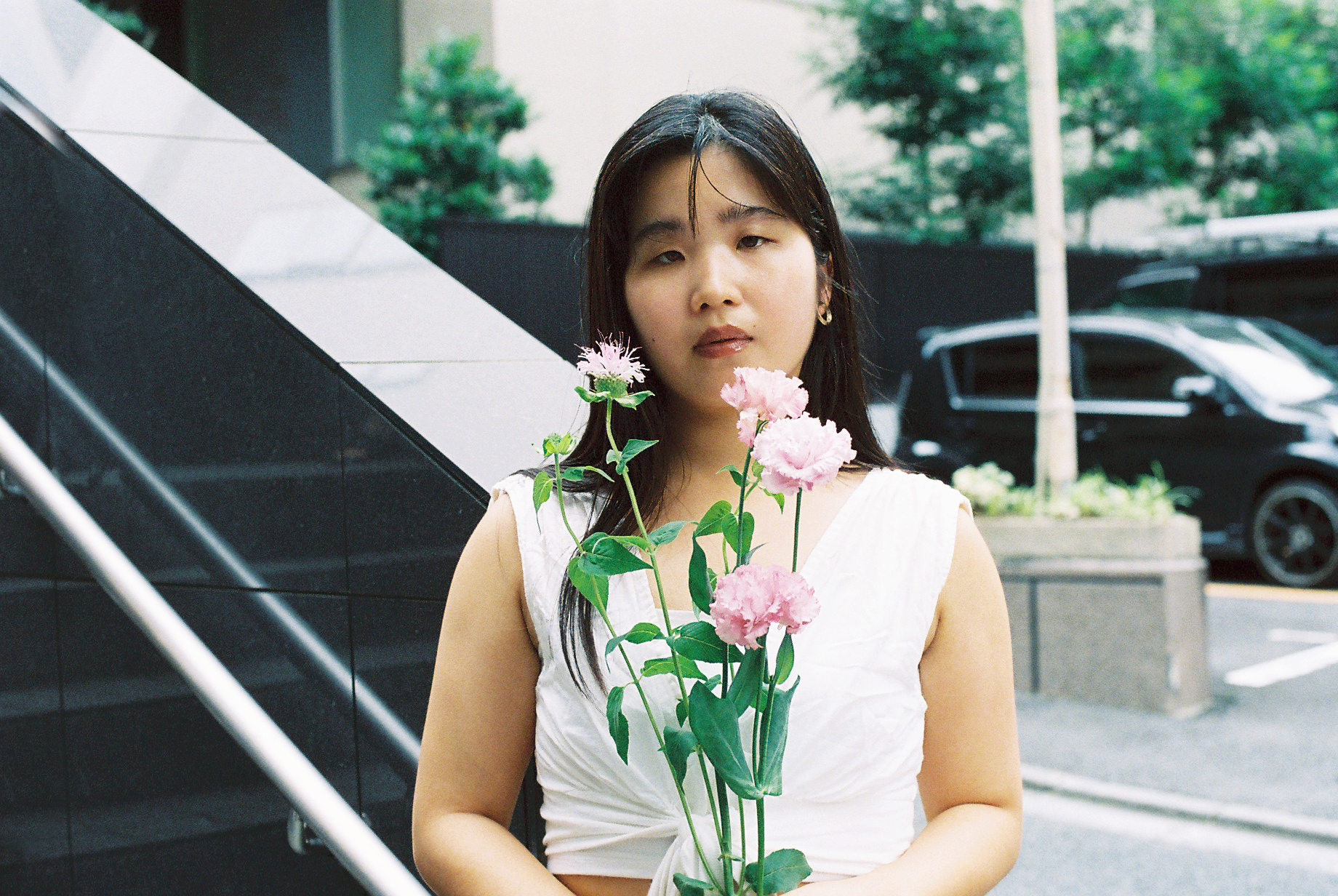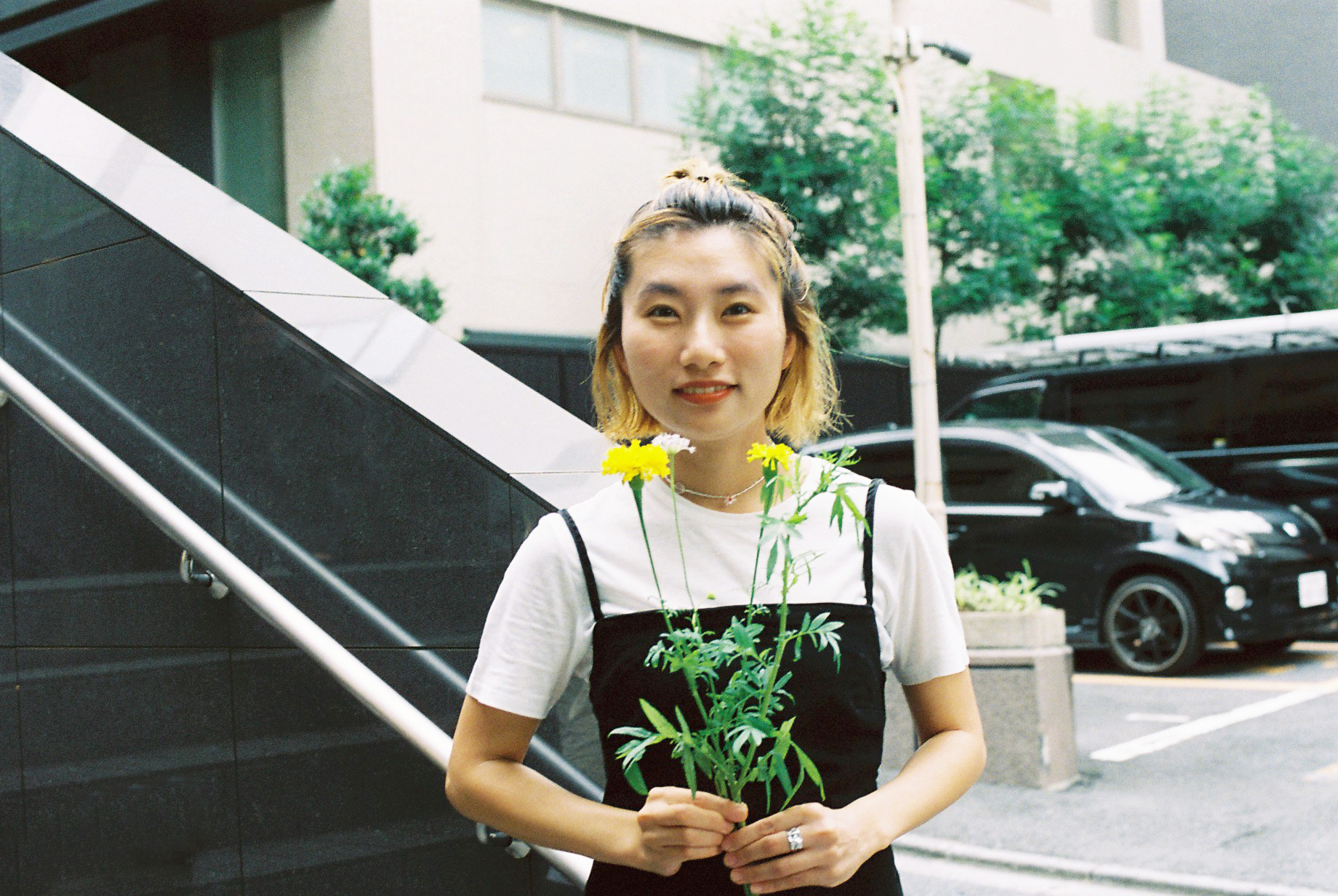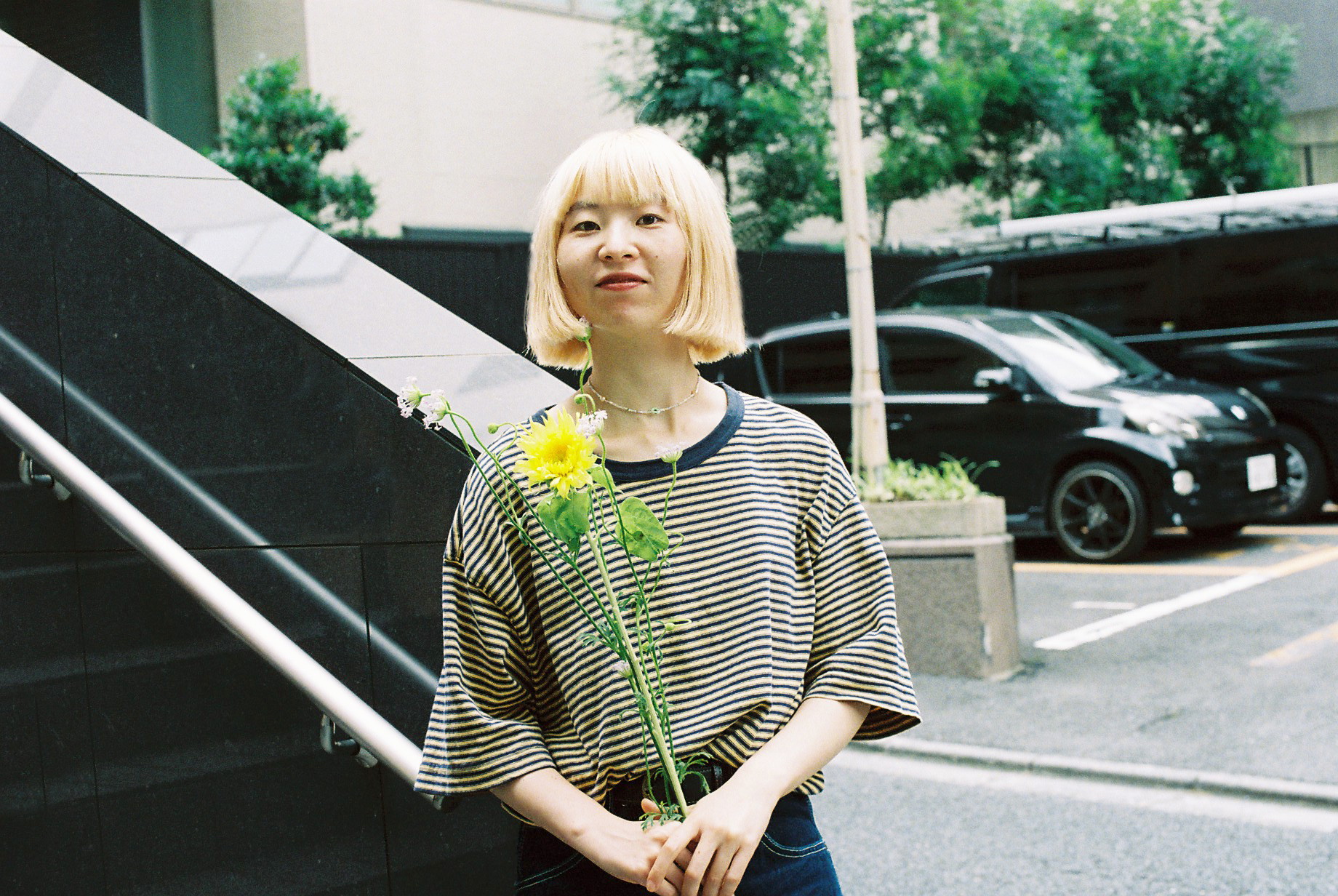Culture can be born out of a specific time and place, and yet, it possesses the ability to become timeless. In this series, “時音” TOKION invites people who are shaping culture today to talk about the past, present, and future.
The coronavirus pandemic has fundamentally changed our world, leaving many anxious about the uncertainty of our future. But the music that comes out of these fraught times might offer us a glimmer of hope or insights into how we can turn our situation around.
In this article, we talk to “NEO: New Exciting Onna-band,” CHAI.
When CHAI released their debut album in 2017, they made a splash with their pop personality and unique band concept. Since then, they’ve been making a name for themselves on the world stage. In 2019, they released their second album, “PUNK.” On their first world tour, the band found themselves traveling overseas every month as they traveled through Japan, Europe, and the US. Then, in January 2020, they joined Mac DeMarco on his Australian tour, followed by a three-week tour of 18 North American cities with American folk-rock duo Whitney. After finally returning to Japan in February, the coronavirus situation worsened, and the band went from traveling the world to staying home. TOKION asked CHAI about what they learned from this intense contrast.
――CHAI was really busy touring abroad last year, and then the coronavirus situation became more serious just as the tour was coming to an end. How did you all keep busy during quarantine?
Yuuki: We were at home the whole time, so mostly just creating.
Mana: We played on Instagram Live, which we normally don’t do. And we tried to figure out what else we could do from home.
Kana: Yeah, like shooting videos. We made musical arrangements with slippers and used cushions as drums. We were making music using things that were lying around the house as instruments.
Yuna: When we went on Instagram Live, bands that we became friends with while touring overseas were commenting. Also, Whitney wore CHAI t-shirts when they went on Instagram Live. And they really loved one of our songs, so they sent us a video of themselves dancing to it and playing the piano. We were really happy to feel all the love.
Yuuki: We did a lot of covers too. We covered a song by The Chemical Brothers, which they actually saw and reposted. We were really happy. I guess anything is worth a shot.
――Did the way you listen to music change after spending more time at home?
Yuuki: It hasn’t changed that much, but I guess my selection has changed a bit. Until now, I always thought the best way to listen to music was live. There’s all this energy, and you’re like, “Yeah! I want to dance!” That’s so much fun–but since we can’t do that anymore, the songs that I find myself listening to have changed. These days, I like the songs that are more like the background music to whatever I’m feeling, sort of like I’m the main character in a movie. I like music that makes my daily life a little better.
Kana: In a way, I’ve sort of felt closer to music.
Mana: Personally, I’ve been listening to old anime music. “Urusei Yatsura” is super cute. It sounds really great on vinyl! Plus, it has a good vibe and makes me feel kind of cool. (laughs)
――Since CHAI’s debut, there’s been a really strong concept behind the music, like “Complex is art” and “Neo Kawaii.” (Note: Neo Kawaii roughly translates to “New Cute”)
Yuuki: From the beginning, we knew we wanted to have a core concept as a band. When we thought about what unique thing the four of us could bring into the world, we realized that our insecurities, or our “complexes,” could actually be a weapon. We talked about how insecurities aren’t something to hide or be embarrassed of, but something to be proud of. In our daily conversations, we were discussing how we all have things that we’re embarrassed of or don’t like about ourselves. But from other people’s point of view, that same thing could be what make us so great. It’s amazing that we have the kind of relationship where we can talk to each other about these topics. And presenting that as our art feels like something special that only we can offer.
――Since CHAI first started, has the original concept changed at all? Do you still stand by the concept, or have you realized anything new?
Mana: We still stand by our original concept. I can really say that with confidence. It’s normal to have insecurities, and turning that into art is really cute. This year, we didn’t get to see each other, and we all had more alone time, so there was more time to get in touch with ourselves. Thanks to that, all four of us were able to come up with our own ideas and come back stronger. I think that was the best part of spending more time alone. We came up with new ideas and it made us want to live our lives more honestly. It’s better to speak your mind. And the times are changing. I want to keep exploring within CHAI and learning new things.
――Has the strong concept ever made it difficult to write songs?
Mana: No, not really. Our concept is just one thing that inspires our work, but we’re not writing songs that strictly adhere to the concept every time.
Yuuki: First, we write something that sounds good, and then we think of what the lyrics will be afterwards. So, the concept doesn’t really get in the way.
――So the basic premise is to make the music good.
Yuuki: Exactly. I guess it’s a matter of how unique we can make each song.
Mana: If we were only telling people that complexes are art, it’d sort of sound like we were just lecturing people.
Yuuki: It’s great to have a strong concept and lyrics, but the sound is really what comes first.
――In our current situation, we can’t really enjoy music in traditional ways, like getting people together for live shows. So, what are your plans for the future?
Yuuki: I think this situation could be positive. Performing live in front of people for entertainment feels like Disneyland, doesn’t it? Of course, that’s nice too, but that’s not all that music is about. Music is about making people’s lives a little bit better, which we can’t do through live music alone.
Mana: I want to really challenge myself and make music that people can listen to for a lifetime. Music that people won’t get bored of, that feels relevant, and that people can keep listening to as they grow old. I’d actually been thinking about this before this all happened, so I feel like the timing is good. I’m feeling really positive about it all!
Yuuki: To get our music overseas, it’s important to meet new people. But even if we can’t physically go abroad, people will still discover good songs. So, I’m looking forward to seeing the new ways in which people will discover our new songs.
Mana: It’s really sad that there’s no longer a physical place to see live shows and fall in love with new music, but it’d be nice if we could recreate this in a different form.
Yuuki: And even when we talk about live shows, there’s more than one kind. I think that there are a lot of ways to make music more artistic and a lot of things we can do as CHAI. I want to do a live show that no one has seen before—something that wouldn’t have been possible if we were fixated on only performing live. Something that’s actually only possible because it’s online. We’re actually thinking of doing something amazing, but we can’t tell you yet because it’s a secret!
CHAI
CHAI is a four-piece band made up of Mana (keys and vocals), Kana (guitar and vocals), Yuuki (bass & backing vocals), and Yuna (drums & backing vocals). They released their first album, “PINK,” in 2017. In February 2018, they debuted on Burger Records (U.S.), and then on Heavenly Recordings (U.K.) in August 2018. In July 2019, they performed at Pitchfork Music Festival in Chicago as the only Japanese band. On August 21st, 2020, they released a 7-inch titled “UNITED GIRLS ROCK N’ ROLL CLUB” with Spanish girl-band HINDS.
https://chai-band.com/
Photography Mariko Kobayashi
Translation Aya Apton

